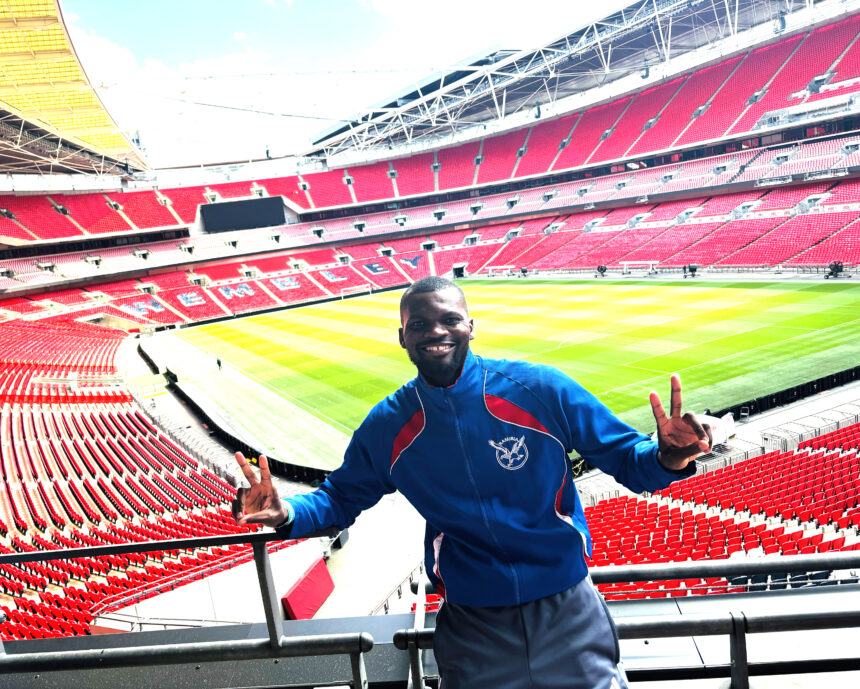Stefanus Ngolo
The Tertiary Institutes Sports Association of Namibia (TISAN) was once a vital institution for nurturing the sporting dreams of Namibian students.
However, its long-dormant state, plagued by internal issues and leadership conflicts, has caused significant harm to the country’s aspiring university athletes. The inactivity within TISAN has deprived sporting students of crucial opportunities to develop their skills and compete on international stages, particularly those organised by the International University Sports Federation (FISU).
This neglect has not only stifled individual athletics ambitions, but has also prevented Namibian tertiary institutions from showcasing their talent and representing the country in global university sports competitions.
In its heyday, TISAN provided a robust platform for student-athletes to hone their talents and gain international exposure. A shining example of this is Ronald ‘Stigga’ Ketjijere, a former captain of Namibia’s national football team. His journey began in TISAN-organised soccer tournaments, where he developed the skills and competitive edge that eventually led him to represent and captain Namibia’s Brave Warriors, and play in South Africa’s Premier League at the highest level.
His success story is a testament to the critical role TISAN played in bridging the gap between university-level sports and national representation. Other shining stars who came through TISAN ranks include Desiderius Sethie, who is a current Namibian rugby union player for the Namibian national team, and Dudes Mwedihanga (former Brave Warriors defender)
All of them went through TISAN ranks, and represented TISAN at international competitions in countries like China and South Africa.
Unfortunately, TISAN’s recent inactivity has left a void in the Namibian sports landscape. Without a functional and active university sports association, students are missing out on the chance to compete in local and international events, which are vital for their growth and exposure.
This contrasts sharply with the thriving British Universities and Colleges Sport (BUCS) system, which has become a model of how university sports can be a pipeline for national teams and even Olympic athletes. BUCS has consistently produced world-class athletes, providing them with top-notch facilities, competitive leagues, and opportunities to compete at international levels.
BUCS’s success demonstrates the potential impact that a well-organised university sports body can have on a country’s athletic prowess. TISAN can learn valuable lessons from BUCS, particularly in governance, resource management and fostering a competitive sports environment.
By establishing strong leadership and resolving internal conflicts, TISAN could revitalise Namibian university sports, and provide a pathway for students to achieve their athletic dreams.
Moreover, a thriving TISAN could address a significant issue facing Namibian sports: the country’s inability to consistently produce a sufficient number of Olympic athletes. University sports bodies like TISAN offer students unique advantages, such as access to university sports facilities, which are often superior to those available to non-student athletes.
These facilities, coupled with structured leagues and tournaments, can significantly enhance an athlete’s development and performance, and probably help increase the number of Olympic athletes.
For TISAN to fulfill its potential, it must get its house in order. The association needs to resolve its internal issues, establish clear and effective leadership, and put in place structures that can support university leagues and tournaments of a high standard. Benchmarking against BUCS, which has successfully integrated university sports into the broader national sports framework, could provide a blueprint for TISAN to follow. By adopting similar structures and practices, TISAN could not only revive university sports in Namibia, but also contribute to the national goal of producing world-class athletes.
In conclusion, TISAN has a crucial role to play in the development of Namibian sports. By learning from successful models like BUCS and addressing its internal challenges, TISAN can once again become a pillar of support for Namibian sports students, helping them achieve their dreams and bringing glory to the nation on the international stage.
*Stefan Ngolo is an academic and sports professional, currently pursuing a Masters in Sports Management (MSc) at The University of East London, England, UK. He holds an Honours Degree in Education and a Master Degree in Education (By Research) from the University of Namibia. He can be reached at ngoloset@gmail.com



